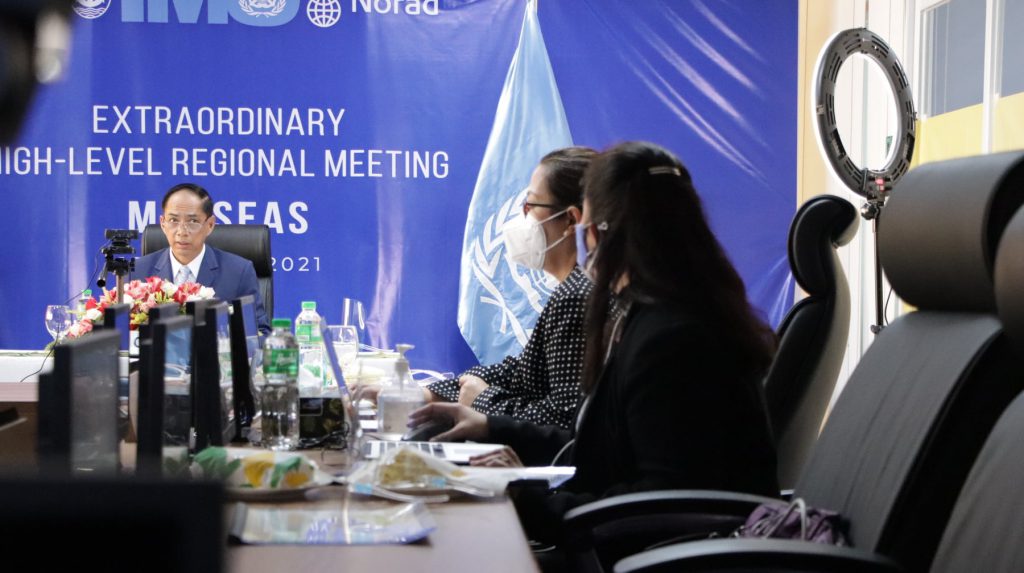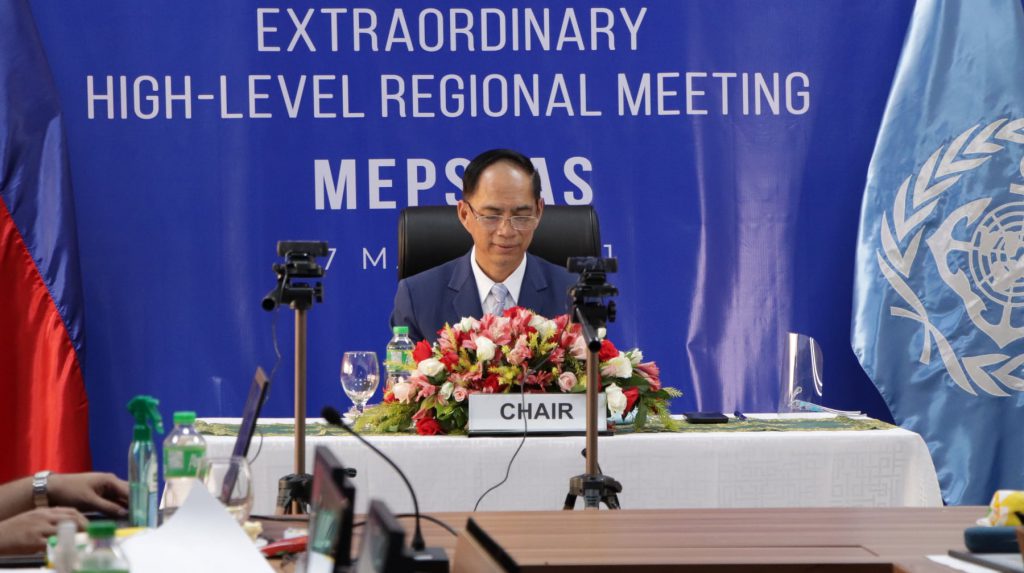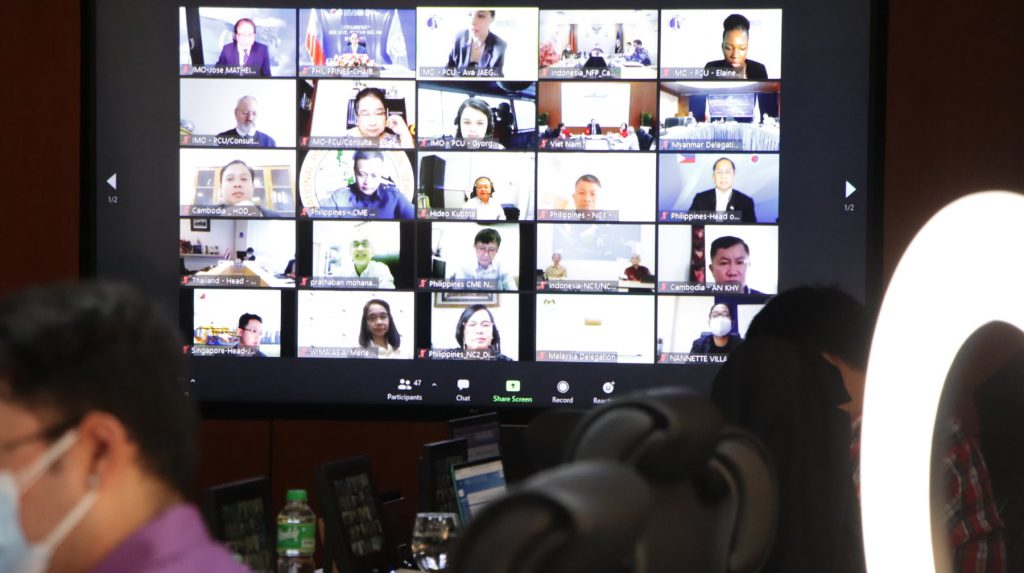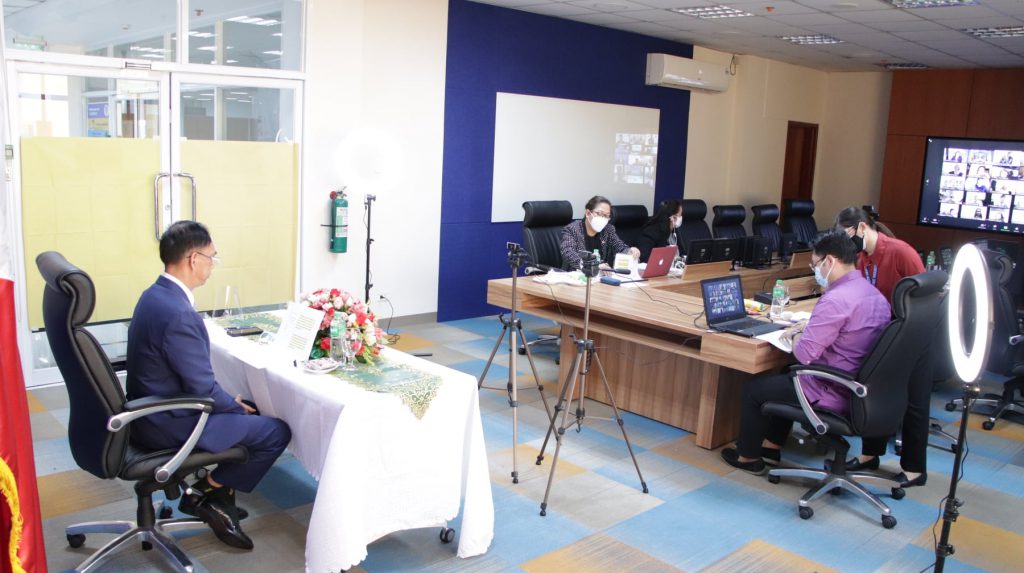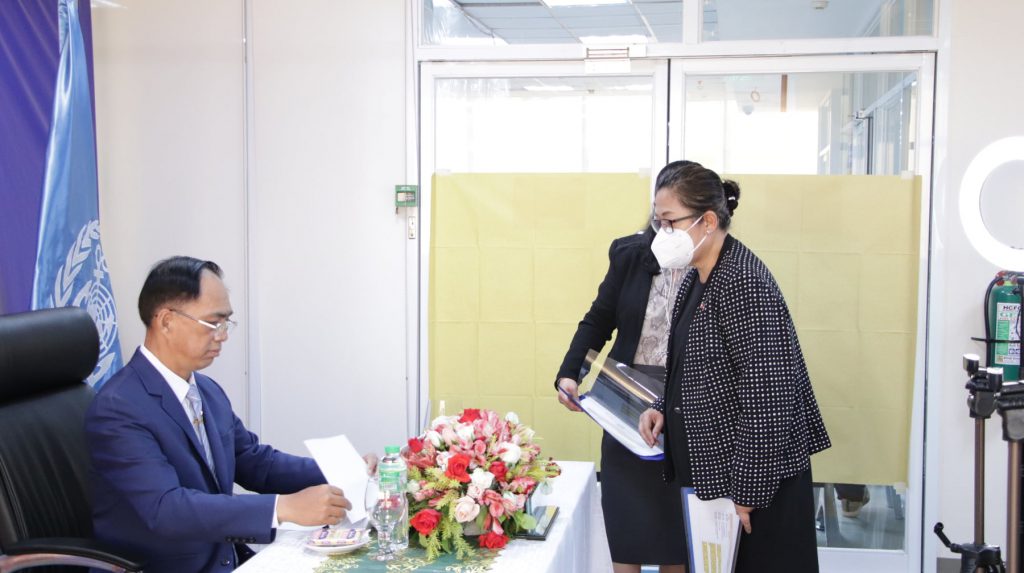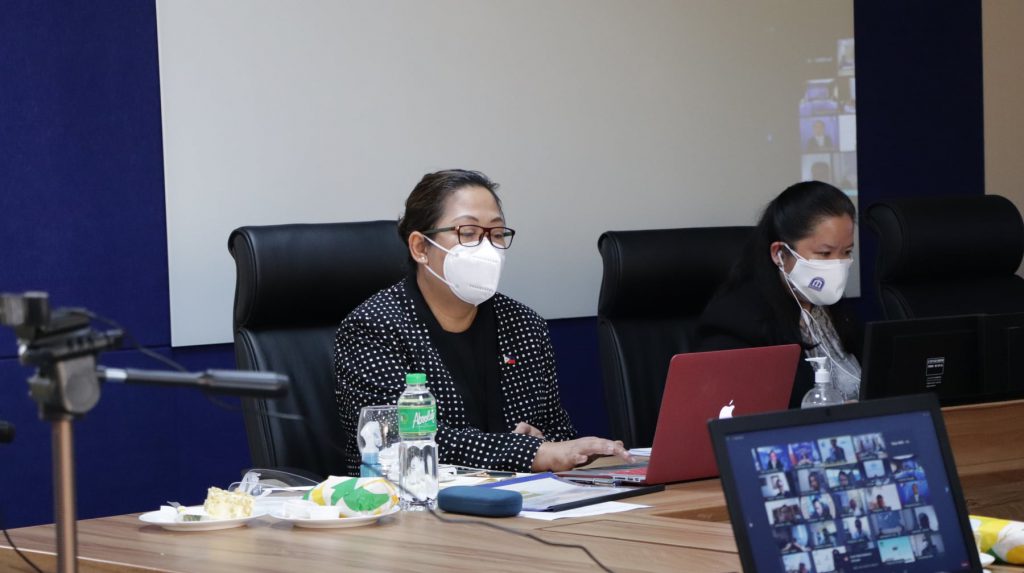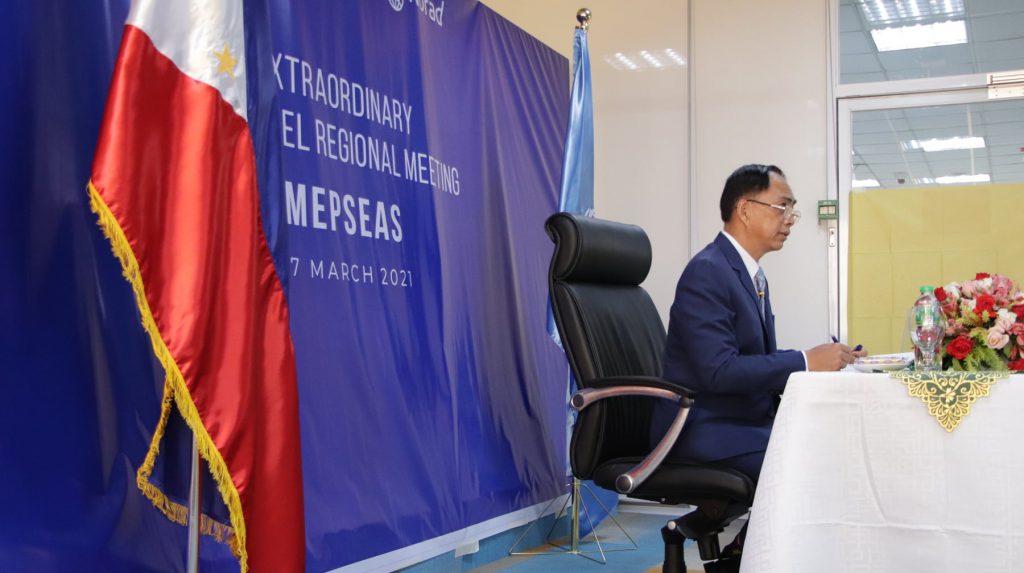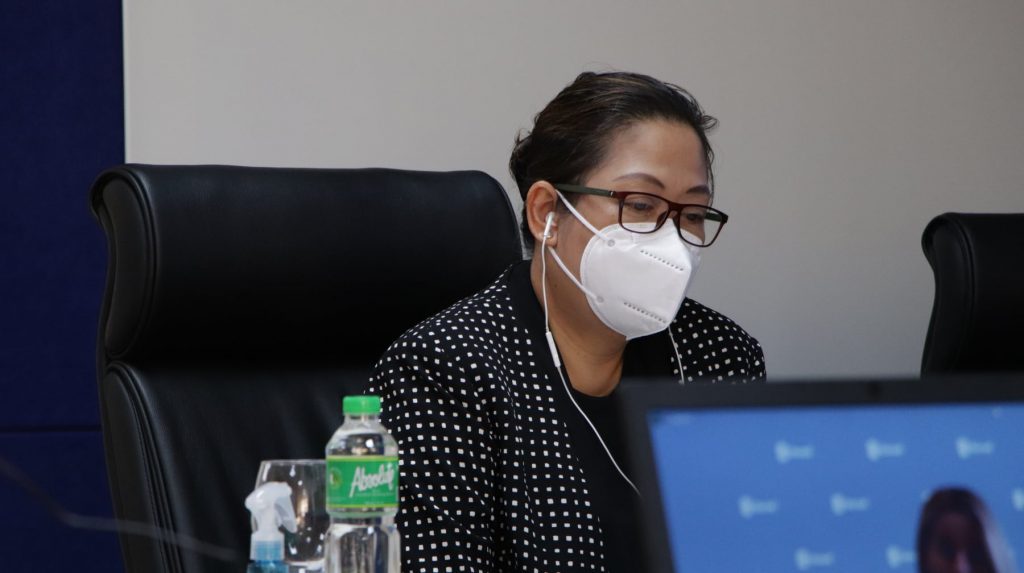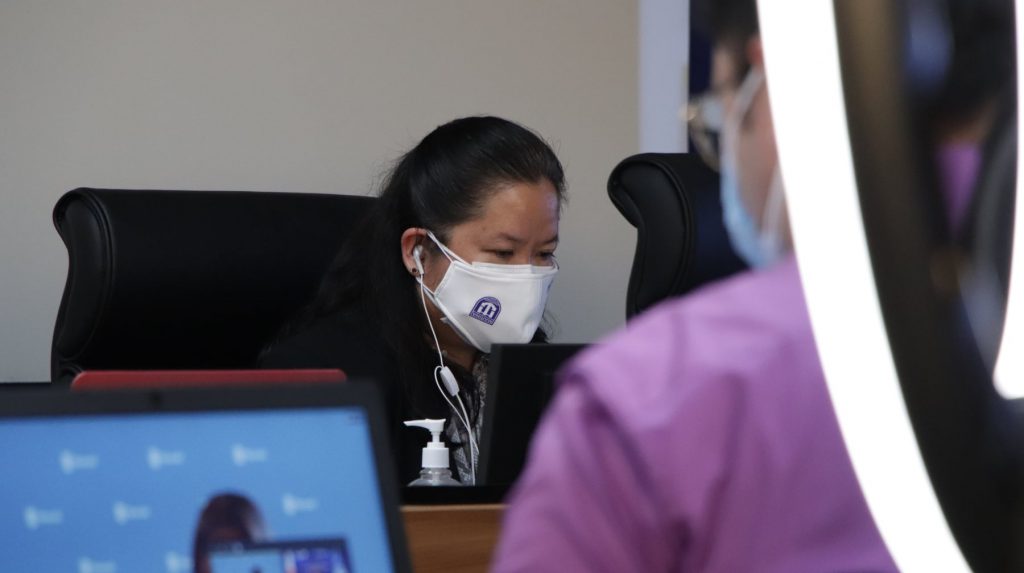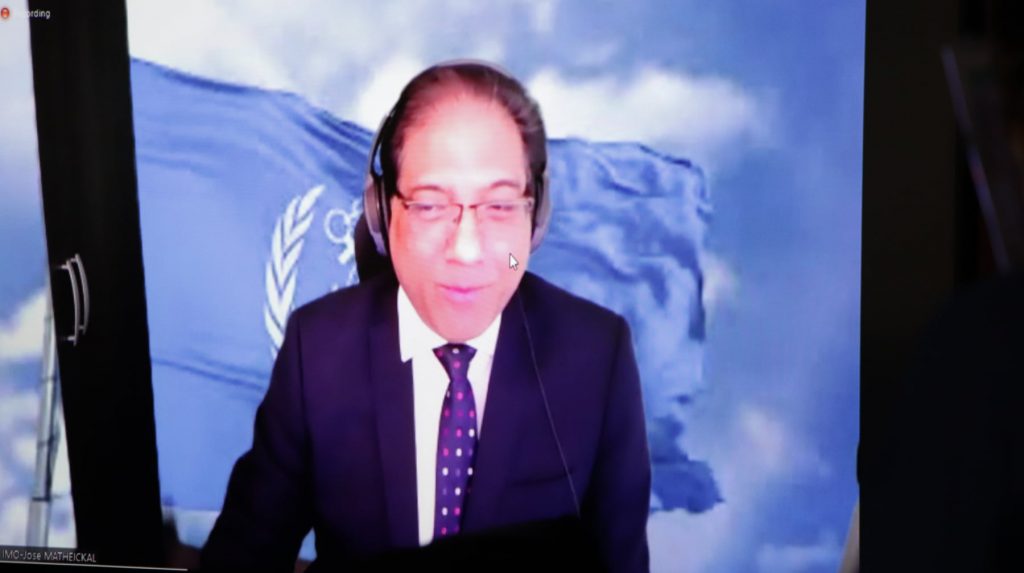Bringing together the high-level officials of the maritime administrations of the participating International Maritime Organization (IMO) Member States in the ASEAN region and representatives of the Marine Environment Protection of the Southeast Asian Seas (MEPSEAS) Project’s strategic partners, the Philippines, through the Maritime Industry Authority (MARINA), hosted the Extraordinary High-Level Regional Meeting (EHLRM) on MEPSEAS on 17 March 2021 via video conferencing.
The Philippines as one of the Lead Partnering Countries (LPC) to the MEPSEAS Project, and MARINA being its National Focal Point (NFP), in coordination with IMO, conducted the EHLRM to review the changes in operational modes imposed by the COVID-19 pandemic as well as the next steps and activities to be undertaken in Year 4 of the said project. It also aims to focus on compliance monitoring and enforcement (CME) of the high priority IMO conventions selected by the partnering beneficiary countries.
As the Chair of the said meeting, MARINA Administrator VAdm Robert A Empedrad AFP (Ret) reiterated the commitment of the Member States in protecting the marine environment despite the unprecedented challenges brought by the COVID-19 pandemic to the maritime industry.
“I am certain there is much to be shared and learned as we strive to face the devastating effects of the COVID-19 virus through shared cooperation. The pandemic notwithstanding, will not deter us as we remain resolute in carrying out the activities as laid down in our respective National Strategic Action Plans (NSAPs),” VAdm Empedrad said.
Dr. Jose Matheickal of the IMO thanked the member countries in considering the solutions for marine environment challenges as a priority.
“The MEPSEAS Project aims to protect the marine environment and the people as well who depend their lives in this industry,” Dr. Matheickal highlighted.
During the meeting proper, the IMO Project Coordination Unit (PCU) gave updates on the project, the risk mitigation actions taken and lessons learned in the COVID-19 pandemic. Moreover, the PCU likewise introduced the work plan and future key milestones as member countries move to MEPSEAS Year 4.
Meanwhile, delegates from the participating beneficiary countries reported the development in their scorecards and adoption of their respective NSAPs, including successes and challenges in completing the NAP activities related to the accession of the chosen IMO Conventions.
Assistant Secretary for Maritime of the Department of Transportation (DOTr), VAdm Narciso A Vingson Jr, as Head of the Philippine Delegation, discussed the developments in implementing the International Convention on the Control of Harmful Anti-Fouling Systems in Ships and International Convention for the Control and Management of Ships’ Ballast Water and Sediments in the Philippines.
As part of the country’s sustainable mechanism, VAdm Vingson mentioned that the country will institutionalize the inter-agency mechanism, strengthen the MARINA Maritime Training Institute, mainstream implementation of Ballast Water Management (BWM) and Anti-fouling Systems (AFS) Conventions into medium-term development plans and existing national action plans, and strengthen partnership with relevant government agencies and institutions.
The MEPSEAS Project is a 4-year project (2018-2021) of the IMO in cooperation with the Norwegian Agency for the Development (NORAD) providing assistance to East Asian countries in ratifying and implementing IMO Instruments for the protection of the marine environment. It also aims to reduce the risks and impacts of environmental issues related to maritime transport in the ASEAN region.
